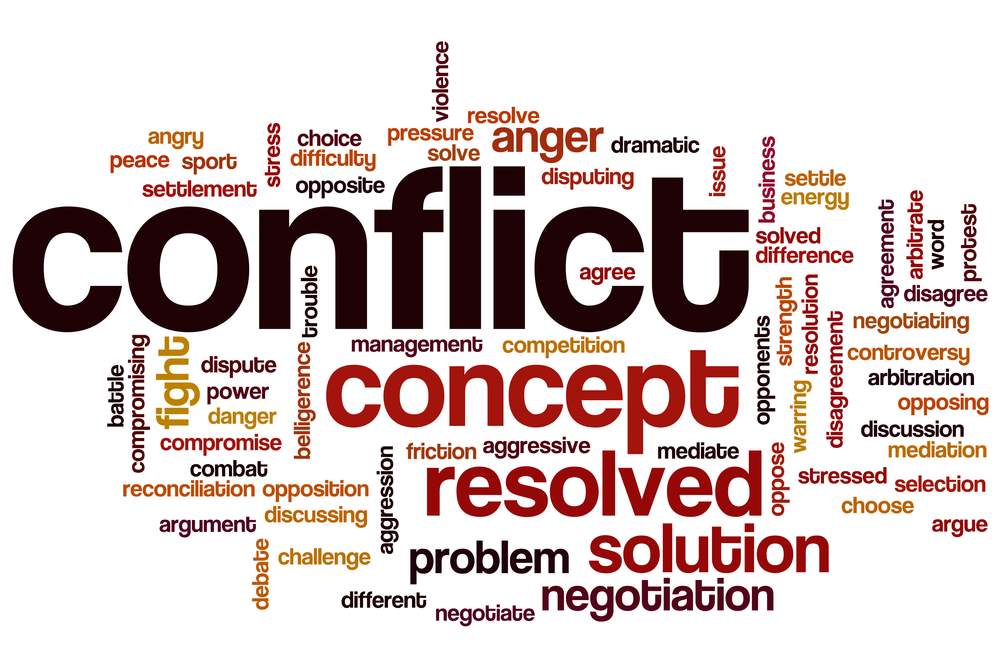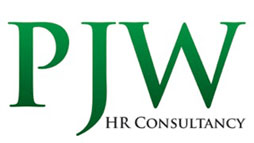The Experts in Conflict Resolution
At PJW, we specialise in conflict resolution and management. Our team has a wealth of experience in supporting managers and team leaders across a range of industries. In addition, we offer leadership development programmes and training courses, plus one-to-one coaching and tailored business guidance.

What is Conflict?
Conflict dates back hundreds of years, originating from the joining of the Latin terms for together – ‘con’ and to strike – ‘fligere’. As old as conflict is, it hasn’t evolved very far and still involves disagreement or opposing needs, demonstrated through actions and words, or the addition of “via digital means”, eg on email or social media.
In the workplace, conflict is an inevitability to some degree. Most of us will have been in a situation when people with different needs and/or views have clashed, and witnessed the ensuing animosity. Not only can this kind of conflict damage the relationship between the individual employees involved. It can cause chaos for what was once a cohesive team.
Conflict can occur anywhere. In a two-person team or a thirty-strong department of people. Small businesses may need to react differently to larger organisations who may be able to refer to their own HR department for support and advice when situations arise. Even then, sometimes depending upon the nature of the conflict, outside advice may need to be sought, particularly if the conflict has been allowed to rumble on.
Conflict resolution in small businesses can be especially challenging because there is often a lack of knowledge or resource to deal with conflict in a timely manner. But conflict in the larger workplace can be just as damaging and can have the same chaotic consequences when not addressed with the respect that it deserves. Moving the problem or re-shuffling people around isn’t the answer.
If left unresolved, conflict can cause tensions and emotions to escalate. Having a damaging impact on the individuals involved and potentially a huge cost to the business. Increases in absences and poor customer service can all impact a companies bottom line.
You can stop the conflict in its tracks by using conflict resolution methods, but it helps to understand how conflict begins.
Why Does Conflict Arise?
There are a number of reasons why employees get caught up in conflict. Even the most placid employees can still get bogged down by issues that they can’t always avoid:
Poor Communication – This is one of the main causes of conflict between people in the workplace. Differing communication styles or a failure to communicate in the first place are often the main factors. Failing to communicate well in the workplace may cause employees to make incorrect assumptions about each other or believe workplace gossip. Not only does this lead to misunderstanding and conflict it impacts productivity and morale.
Different Views of the World – It’s a given that your employees will come from different backgrounds with different experiences. This all plays a part in making them who they are and why you employed them in the first place. However, problems occur when we don’t take time to, first of all, understand those differences, make the most of the richness that brings in shaping and delivering your unique proposition.
Different Values – We all have our own unique set of values and standards which we hold in high regard, shaped by our upbringing and personal experiences. Understanding what they are, and respecting individual and collective values of teams isn’t always high on the “to do list” and yet is so very often at the heart of most issues.
Competition – Unhealthy workplace competition can easily become a cause of employee conflict. Some industries foster competitive environments more than others. Competition that is not closely managed by employers can result in dysfunctional behaviour sabotaging and insulting one another. Sometimes involving customers, creating a hostile and unproductive working environment.
In addition to the aforementioned causes of workplace conflict, there are many more that may contribute to issues and, if not resolved swiftly, can cause disruption.
What is Conflict Resolution?
Conflict Resolution is the process of two or more parties, who are engaged in a disagreement, dispute or debate, taking steps to reach an amicable resolution.
Every business encounters disagreements, it usually means something needs to change and should be viewed as an opportunity. However, if a conflict does come to light it is imperative that you intervene quickly to limit the negative impact on other employees and the business.
It is important that each individual is able to speak about their issues. This can be a challenging thing to do yourself and can often heighten the situation if you are seen to be interfering. With the right conflict resolution training, you can start to understand how to minimise the impact and take positive steps towards resolution. There is no guarantee that it will work the first time, every time, but dealing with conflict and nipping things in the bud is the best way to handle it and will leave you knowing that you did everything in your power.
Conflict resolution is a challenging area, but as a supervisor, manager or business owner, it is important that you know how to identify and respond to it. Hoping for the best and expecting an issue to resolve itself is potentially the worst approach, knowing the basic conflict resolution techniques could save you a lot of disruption. If the issue is allowed to go on, it may find its way into a more formal process through a grievance being raised, at which point relationships are rarely restored.
If you want to know more about the benefits of conflict resolution in the workplace, you can visit our benefits of conflict resolution page.
Conflict Resolution Training Delivered by PJW
If you want to upskill your leaders and supervisors to be able to manage conflict in your workplace, you can view our conflict resolution training page for more details about what we can offer you or your management team.
